Colon Cancer Specialists in Bangalore
What is Colon Cancer ?
Colon and rectal cancer are more frequently observed and diagnosed among people of age 65 to 74 years (median age is 68 years), though lately, it is visible in the lower age groups also. In the western world, colon cancer is observed more commonly than rectal cancer. In India, rectal cancer is more common with men being commonly affected than women.
Best Colorectal Cancer Doctors say that Colorectal cancer usually starts in the innermost layer (mucosa) and will grow through some or all of the tissue layers that make up the colon and rectum (submucosa, muscularis and serosa ). The extent to which a cancer penetrates the various tissue layers determines the stage of the disease.
Symptoms of Colon Cancer
- Changes in bowel patterns, such as diarrhoea, constipation, or more frequent bowel movements
- Dark maroon or bright red blood in stool
- Narrow stool
- A feeling that your gut doesn’t empty fully
- Abdominal pain
- Unexplained or sudden Weight loss
- Weakness or fatigue
- Loss of appetite
Causes of Colon Cancer
Rectal cancer develops when the DNA of healthy cells in the rectum undergoes mutations. The DNA of a cell includes the instructions that tell it what to do.
The alterations tell the cells to grow out of control and to live even when healthy cells would die. A tumour can arise as a result of the accumulated cells. Cancer cells can grow large enough to penetrate and destroy healthy tissue nearby over time. Cancerous cells can also break off and spread to other places of the body (metastasize).
It’s unclear what causes the mutations that cause rectal cancer to occur in most cases.
Inherited gene mutations that increase the risk of colon and rectal cancer
Gene mutations passed down from parents to children can raise the risk of colorectal cancer in some families. Only a small percentage of rectal tumours contain these mutations. Colorectal cancer genes raise the likelihood of developing the disease, but they do not make it inevitable.
Two well-defined genetic colorectal cancer syndromes are:
Lynch syndrome:
Two well-defined genetic colorectal cancer syndromes are: Lynch syndrome: Lynch syndrome is a condition that affects people. Hereditary non-polyposis colorectal cancer (HNPCC), often known as Lynch syndrome, raises the risk of colon cancer and other cancers. Lynch syndrome patients are more likely to get colon cancer before the age of 50.
Familial adenomatous polyposis (FAP):
FAP is an uncommon illness in which the lining of your colon and rectum develops hundreds or thousands of polyps. People with untreated FAP have a much higher chance of acquiring colon or rectal cancer before they reach the age of 40.
These and additional, less common inherited colorectal cancer syndromes can be detected by genetic testing. If you’re concerned about a family history of colon cancer, consult a proctologist to see if your family history shows you’re at risk for these diseases and get it checked from them
Risk Factors of Colon Cancer
The same factors that enhance the risk of colon cancer can also increase the chance of rectal cancer.
The following are some of the risk factors for colorectal cancer:
- Older age:
Colorectal cancer can be diagnosed at any age, although the majority of people diagnosed with it are over the age of 50. Colorectal cancer rates in persons under the age of 50 have been rising, but physicians or doctors aren’t sure why. - African-American descent:
People of African ancestry born in the United States have a greater risk of colorectal cancer than do people of European ancestry. - A personal history of colorectal cancer or polyps:
Your risk of colorectal cancer is higher if you’ve already had rectal cancer, colon cancer or adenomatous polyps. - Inflammatory bowel disease:
Chronic inflammatory diseases of the colon and rectum, such as ulcerative colitis and Crohn’s disease, increase your risk of colorectal cancer. - Inherited syndromes that increase rectal cancer risk:
Genetic syndromes passed through generations of your family can increase your risk of colon and rectal cancer, including FAP and Lynch syndrome. - Family history of colorectal cancer:
If you have a parent, sibling, or kid who has had colon or rectal cancer, you’re more likely to acquire colorectal cancer. - Eating a diet low in vegetables:
A diet high in red meat and low in vegetables, especially when the meat is burned or well done, may be linked to colorectal cancer. - Too little exercise:
Colorectal cancer is more likely to occur if you are physically inactive. Regular physical activity may help to lower your cancer risk. - Diabetes:
People with poorly controlled type 2 diabetes may have an increased risk of colorectal cancer. - Obesity:
When compared to those of a healthy weight, obese people have a higher risk of colorectal cancer. - Smoking:
Smokers may be at a higher risk of colorectal cancer. - Drinking alcohol:
Regularly drinking more than three alcoholic beverages a week may increase your risk of colorectal cancer. - Radiation therapy for previous cancer:
Radiation therapy directed at the abdomen to treat previous cancers may increase the risk of colorectal cancer.
Treatment for Colon Cancer
Colon cancer treatment options include:
- Radiation therapy
- Chemotherapy
- Hormonal and biological therapy
- Local ablative therapy
- A combination of all 3 approaches
Prevention of Colon Cancer
- Talk to your doctor about cancer screening:
Colorectal cancer screening lowers cancer risk by detecting precancerous polyps in the colon and rectum that could turn cancerous. Inquire with your doctor about when you should start screening. Most doctors and hospitals recommend beginning colorectal cancer screening at the age of 50, or earlier if you have risk factors for the disease.There are several screening options available, each with its own set of advantages and disadvantages. Talk to your doctor about your options, and the two of you can determine which tests are right for you.
Exercise most days of the week:
On most days, try to get at least 30 minutes of exercise. Start softly and progressively increase to 30 minutes if you have been idle. Also, before commencing any fitness routine, consult your doctor.Eat a variety of fruits, vegetables and whole grains:
Vitamins, minerals, fiber, and antioxidants found in fruits, vegetables, and whole grains may help to prevent cancer. To receive a wide range of vitamins and nutrients, eat a variety of fruits and vegetables.Maintain a healthy weight:
Maintain your healthy weight by exercising regularly and eating a nutritious diet. If you’re overweight, gradually reduce weight by increasing your exercise and lowering your calorie intake.Stop smoking:
Stop smoking if you do. Talk to your doctor about your choices if you’re having problems quitting. Medications and counselling may be of assistance.Avoid alcohol intake:
Avoid intake of alcohol in excess or on a regular basis.
Our Team
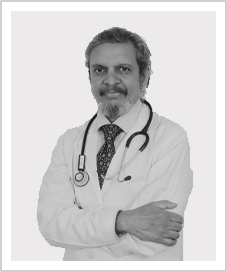
MBBS, MS,
Founder & Chief Proctologist
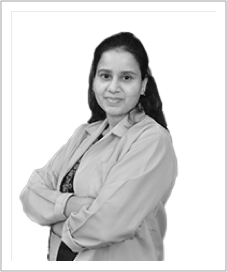
MBBS, MS, FSGE
Surgical Gastroenterology
& Colorectal Surgeon
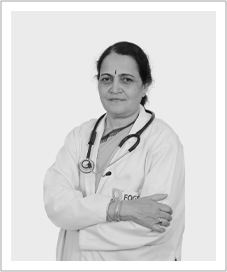
MBBS, MS
Senior Gynaecologist
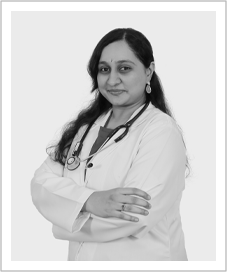
BAMS, MD
Proctologist
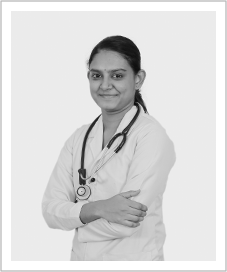
BAMS,MS
Proctologist

MBBS, MS (Gen Surgery) DNB (Gen Surgery), FMAS General & Laparoscopic Surgeon

BAMS MD Sangnyaharana
(Anaesthesiology)

MBBS, DNB Anaesthesiology
